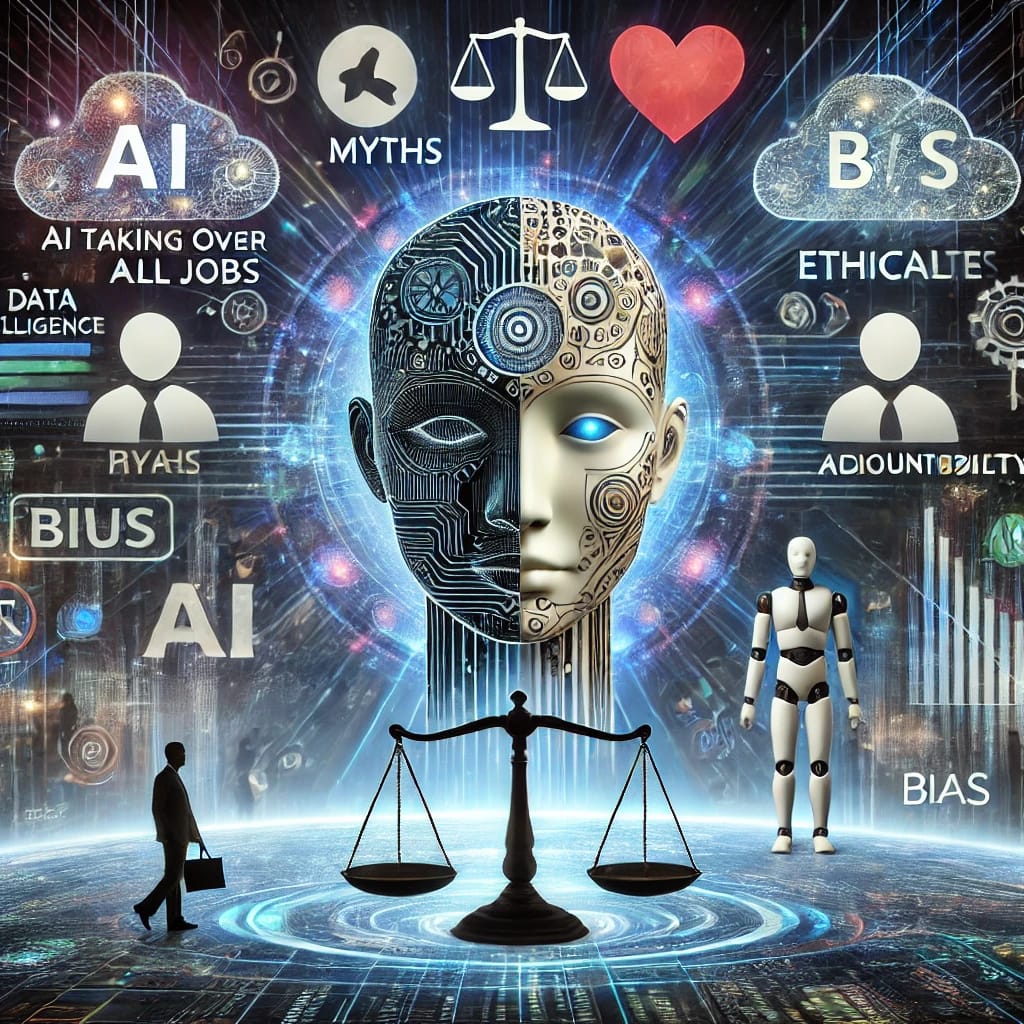Part 4 – Unveiling AI – Myths, Realities, and Ethical Considerations

Artificial Intelligence (AI) is a rapidly evolving field, often surrounded by misconceptions and ethical debates.
In this segment, we’ll address prevalent myths, clarify the realities, and explore the ethical dimensions of AI.
Common Misconceptions About AI
1. AI Thinks Like Humans
AI lacks consciousness and emotions. It processes data and executes tasks based on algorithms and learnt patterns but doesn’t possess self-awareness or genuine understanding. For instance, while AI can play chess at a high level, it doesn’t understand the game; it calculates optimal moves based on data.
2. AI Will Replace All Human Jobs
AI is automating certain tasks, especially repetitive or hazardous ones, but it’s also creating new job categories and opportunities. The human touch remains essential in roles requiring creativity, empathy, and complex decision-making.
3. AI Is Free from Bias
Reality: AI systems learn from data, and if that data contains biases, the AI can inadvertently perpetuate them. Ensuring diverse and representative datasets is crucial to minimise biased outcomes.
4. AI Can Learn and Adapt on Its Own
While AI can process vast amounts of data and identify patterns, it requires human guidance for learning objectives and interpreting results. AI doesn’t possess independent reasoning or the ability to set its own goals.
5. AI Is Only for Tech Experts
AI applications permeate various aspects of daily life, from personalised streaming recommendations to virtual assistants. Its integration into user-friendly platforms makes AI accessible beyond the tech community.
Ethical Considerations in AI
As AI becomes more integrated into society, addressing its ethical implications is paramount.
1. Privacy and Data Protection
AI systems often rely on analysing personal data, raising concerns about how this information is collected, stored, and used. Protecting individuals’ privacy and ensuring data security are essential to maintaining trust and complying with legal standards.
2. Bias and Fairness
AI can reflect and amplify existing societal biases present in its training data, leading to unfair or discriminatory outcomes. Continuous monitoring and the development of unbiased algorithms are necessary to promote fairness.
3. Transparency and Accountability
Understanding how AI systems make decisions is crucial, especially in critical areas like healthcare or criminal justice. Ensuring that AI processes are transparent and that there is accountability for their outcomes helps build public trust.
4. Environmental Impact
The computational power required for training complex AI models consumes significant energy, contributing to environmental concerns. Developing energy-efficient algorithms and sustainable practices is vital to mitigating AI’s ecological footprint.
5. Autonomy and Control
As AI systems gain more capabilities, defining the boundaries of their autonomy is essential. Ensuring that humans retain control over AI decisions, especially in life-critical situations, is a key ethical consideration.
